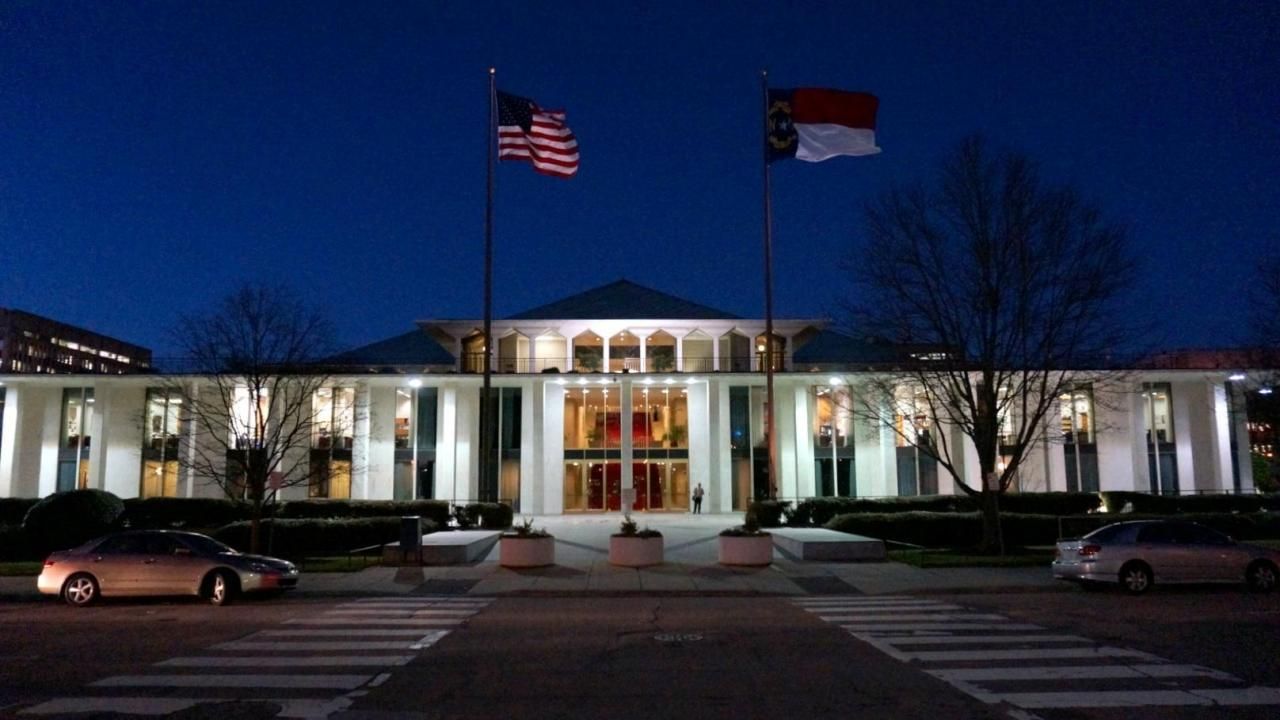NC legislature to keep itself exempt from public records laws, top Senators indicate

State lawmakers are standing by their decision to exempt themselves from public records laws, a debate in the state Senate appeared to reveal Thursday.
When the Republican-controlled legislature passed the new state budget late last year, GOP leaders included many provisions that dealt with policy issues rather than state spending. One of those was a sweeping new law giving every lawmaker the ability to destroy any of their records at any time — and clarifying that legislators could decide on their own whether to hand over any information in response to public records requests or even, in some cases, in legal discovery for lawsuits.
On Thursday the state Senate passed what’s known as a technical corrections bill, Senate Bill 508, making changes to the current year's budget. It's separate from the legislature's bigger task, also planned for this spring, to rewrite next year's state budget including a new, unplanned-for $1 billion surplus.
Sen. Graig Meyer, D-Orange, proposed using SB508 to undo the public records changes in last year’s budget. He said Thursday that beyond his concerns over transparency, he’s concerned that the new law even allows politicians to sell people their emails, text messages or other records.
That raises concerns such as lawmakers selling — or threatening to sell — their correspondence with one person or business to one of their competitors, he said.
Specifically, the new law says each individual lawmaker has full, solo discretion “to retain, destroy, sell, loan, or otherwise dispose of” any records in their custody.
After the Senate shot down Meyer’s proposal to undo that new law, Senate leader Phil Berger told reporters that Meyer’s concerns were misplaced. “I have not seen any instance of a lawmaker trying to sell their records,” Berger said. “I think Sen. Meyer has a certain agenda, to raise issues that he feels are popular in his district.”
In an interview, Meyer said he also didn’t know of any lawmakers who were selling their records.
But the entire problem, he added, is that it would be impossible to find out — since any lawmaker selling his or her records is now also legally allowed to destroy any records of those sales and any conversations leading up to them.
“How would we ever know?” Meyer asked.
Berger didn’t say whether he had issued any guidance to his fellow Republican senators on how to handle records, given the new law. Meyer said the top Senate Democrat, Sen. Dan Blue hadn’t issued guidance to the Democratic caucus.
“There is some disagreement in our caucus on exactly how we should comply with public records requests,” Meyer said in the interview. “But nobody thinks you should be able to sell them.”
Lauren Horsch, a spokeswoman for Berger, said the provision in the budget about selling records was simply meant to allow the legislature to charge people for complying with their public records requests. But Meyer said there has already been a law, in place for years, that allows the state to charge fees for carrying out records requests.
Meyer said on the Senate floor Thursday that the continued existence of the new law on how lawmakers can deal with records is “an issue of urgent public concern.” But in the end, only one fellow lawmaker joined him in voting against the bill, Sen. Val Applewhite, D-Cumberland. It passed 39-2.
The North Carolina Association of Broadcasters has opposed the new law, calling it "antithetical to North Carolina’s public records law and policy." Capitol Broadcasting Co., the owner of WRAL News, is a member of the NCAB.
Meyer’s proposal Thursday to undo the changes was shot down after one of Berger’s top lieutenants, Sen. Ralph Hise, R-Mitchell, said it was too substantive to be included in the technical corrections bill, of which Hise is the lead sponsor.
Technical corrections bills are meant to be used for relatively minor fixes such as correcting typos and punctuation errors, or changing the date something will go into effect. Some of the other changes in this year’s version include:
- Making $50 million worth of funding for mental health care open to all health facilities, not just hospitals.
- Exempting four charities from having to come up with matching funds in order to receive millions of dollars in state funds.
- Increasing state aid to the small town of Midland (pop. 4,900) for new sewer lines, from $5 million to $11 million. One of the town’s residents is Rep. Kevin Crutchfield, R-Cabarrus.
- Taking a $1.5 million physician training grant away from the N.C. Medical Society, a pro-doctor lobbying group, and giving it instead to a different nonprofit, Neuroimmune North Carolina. Randy Aldridge, a spokesman for the Medical Society, said Thursday that the original budget was simply mistaken — and that the money was never meant for the Medical Society in the first place.












